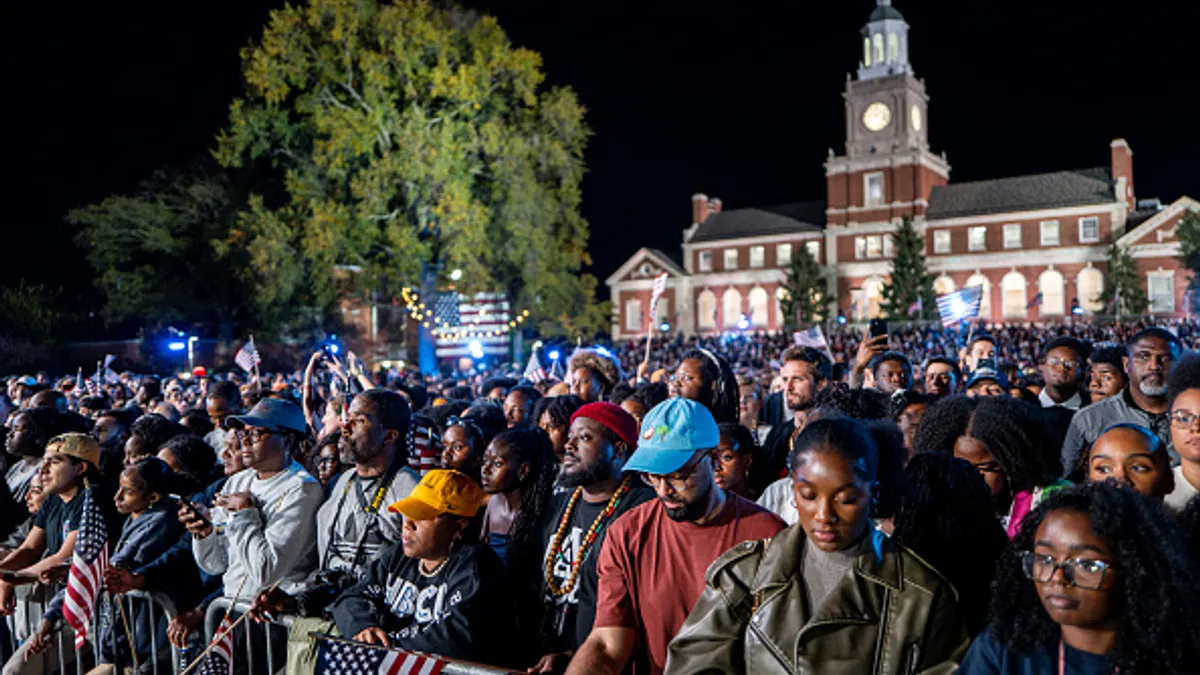After a contentious election season and the declaration of Donald Trump as the next U.S. president with his defeat of Vice President Kamala Harris, strong emotions may linger as students process the outcome.
Student support experts say schools can use this situation as a teaching moment for lessons about constructive dialogue, how civic engagement benefits youth, and the management of election-related emotions.
While polarizing political issues can inflame tempers and raise stress levels, some say elections also offer opportunities to help students connect with peers and develop their identities and self agency — even if most of them are too young to vote.
Adults can proactively talk to youth about the potential for strong feelings regarding election outcomes — and acknowledge and empathize with their emotions, suggests an Oct. 28 paper from the Center for the Developing Adolescent at the University of California, Los Angeles.
Both the center and the National Association of School Psychologists recommend that adults support students’ mental health during elections. This is especially important for those who may feel anxious or threatened based on their beliefs or experiences, the groups say.
"Many children and youth are aware of the intensity of political events, and some may feel at risk. This can include those whose preferred candidate or stance on an issue did not win and those who feel targeted or marginalized," said a NASP resource issued earlier this year about supporting students during politically charged times.
NASP advised that schools immediately stop any harassment or bullying — and at the same time not assume all students are affected by election outcomes.
The School Social Work Association of America also advises school staff to listen to and validate students' emotions around the election. The association recommends social workers encourage respectful dialogue and help students develop empathy toward others who have different viewpoints.
"By creating safe spaces, modeling empathy, and promoting acceptance, School Social Workers can provide invaluable support to students during and after election cycles, helping them feel understood, empowered, and resilient," the association said in a statement posted to its website Oct. 28.
During politically contentious moments, NASP also advises schools to support staff well-being, including by providing guidelines and resources to educators on leading politically related discussions and by supporting students' needs.







 Dive Awards
Dive Awards






